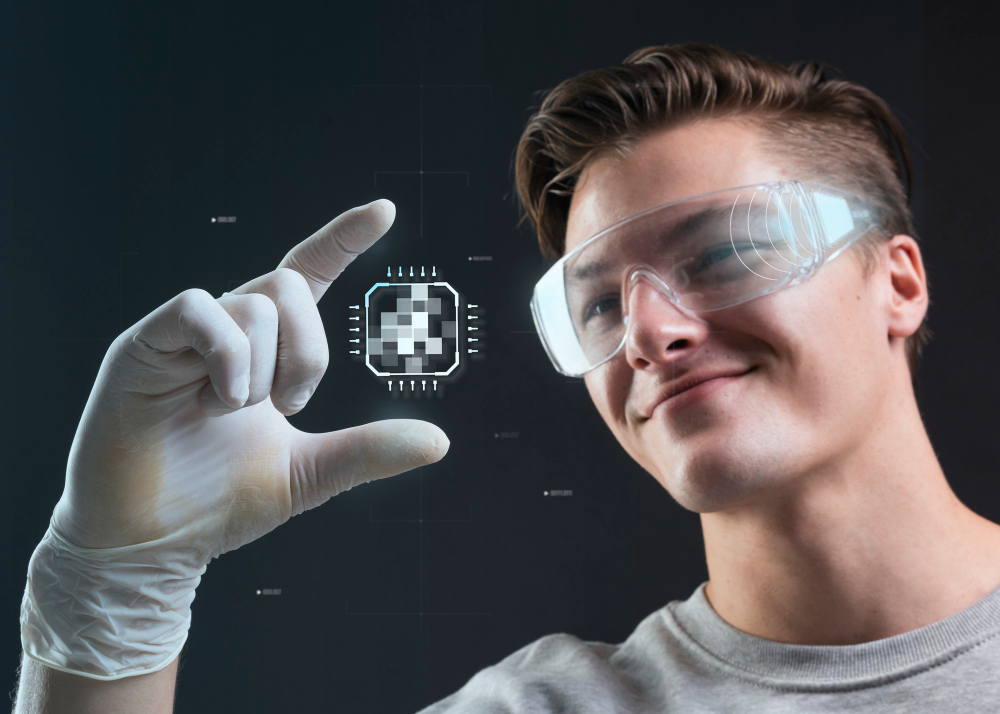Introduction
Eyewear, such as glasses and sunglasses, has become more than just a fashion accessory; it plays a crucial role in our daily lives. Beyond the realm of aesthetics, eyewear serves essential functions in enhancing vision, protecting our eyes, and improving our overall well-being. In this article, we will explore the various aspects that highlight the importance of eyewear and how it significantly impacts our lives. A lot of e-commerce websites are offering low sunglasses price in Pakistan making them affortable and easy to attain.
1. A Clear Vision: Improving Visual Acuity
The primary purpose of eyewear is to provide individuals with clearer vision. For those with refractive errors like myopia (nearsightedness), hyperopia (farsightedness), and astigmatism, prescription glasses correct these issues, allowing people to see the world with precision and clarity. By enhancing visual acuity, eyewear enables individuals to perform daily tasks, such as reading, driving, or using digital devices, with ease and comfort.
2. Eye Protection: Shielding from Harmful Elements
Beyond improving vision, eyewear acts as a protective shield for our eyes. Sunglasses, for instance, are equipped with UV protection that safeguards our eyes from harmful ultraviolet rays emitted by the sun. Prolonged exposure to UV rays can lead to serious eye conditions, such as cataracts and macular degeneration. With the right eyewear, we can enjoy outdoor activities without compromising our eye health.
3. Reducing Eye Strain: Easing Discomfort
In today’s digital age, many of us spend extended hours in front of screens, be it computers, smartphones, or televisions. This prolonged screen time can lead to digital eye strain, causing symptoms like dry eyes, headaches, and blurred vision. The use of computer glasses with blue light filters helps mitigate eye strain, making long screen sessions more bearable and comfortable.
4. Fashion and Style: Making a Statement
While functionality is paramount, eyewear has evolved into a fashion statement. With a wide array of stylish frames and designs available, people can express their personality and style through their choice of eyewear. Fashionable eyeglasses and sunglasses have become a staple accessory, complementing various outfits and elevating one’s overall appearance.
5. Sports Performance: Enhancing Athletic Abilities
For athletes, specialized sports eyewear can significantly impact performance. Sports sunglasses with polarized lenses reduce glare, enabling athletes to see more clearly in bright conditions. Additionally, safety goggles protect the eyes during physical activities, reducing the risk of injuries that could hamper an athlete’s career.
6. Safety at Work: Preserving Vision in Hazardous Environments
In certain professions, workers are exposed to hazardous environments that pose risks to their eyes. Safety glasses are essential in these settings, providing a barrier against potential threats like flying debris, chemicals, or sparks. By prioritizing eye safety, employees can perform their duties confidently, knowing their vision is protected.
7. Childhood Development: Addressing Vision Issues Early
In children, uncorrected vision problems can hinder learning and development. Regular eye exams and the use of eyewear when necessary can address vision issues early, ensuring that children can excel in their academic pursuits and everyday activities.
8. Prescription Sunglasses: A Dual Purpose Solution
Prescription sunglasses offer the best of both worlds, catering to individuals with refractive errors who also require sun protection. These versatile eyewear options allow people to enjoy outdoor activities without switching between regular glasses and sunglasses.
9. Age-Related Vision Changes: Adapting to Life’s Stages
As we age, changes in vision become more common. Presbyopia, a condition where the eye’s lens loses flexibility, is one such example. Eyewear, such as reading glasses or multifocal lenses, addresses these age-related vision changes, ensuring older adults can maintain their independence and quality of life.
10. Psychological Impact: Boosting Confidence
Eyewear can have a profound psychological impact on individuals. For those who have struggled with vision issues, wearing glasses can boost self-confidence, as they no longer feel self-conscious about their visual impairment. Similarly, donning fashionable eyeglasses can elevate one’s self-esteem and perception of themselves.
11. Sustainability in Eyewear: A Responsible Choice
With the growing concern for environmental sustainability, many eyewear manufacturers are embracing eco-friendly materials and production processes. Opting for sustainable eyewear not only contributes to environmental preservation but also sets an example for conscious consumerism.
12. Vision for All: Accessibility and Inclusivity
Eyewear plays a vital role in promoting inclusivity, ensuring that people of all ages and backgrounds can access proper eye care. Initiatives like affordable eyeglass programs and charitable donations of eyewear enable underserved communities to improve their vision and lead better lives.
13. The Technological Advancements: Innovations in Eye Care
The field of eye care has witnessed significant technological advancements. From high-tech lens coatings to smart eyewear with augmented reality capabilities, these innovations are reshaping how we perceive the world and interact with it.
14. Caring for Your Eyewear: Maintenance Tips
To maximize the lifespan and effectiveness of eyewear, proper care is essential. Simple practices like cleaning lenses correctly, storing glasses in protective cases, and regular maintenance ensure that eyewear remains in top condition.
Conclusion
Eyewear goes beyond being a mere tool for vision correction; it is a multifaceted accessory that impacts our lives on various levels. From improving visual clarity and eye protection to enhancing style and performance, the importance of eyewear cannot be overstated. By recognizing its significance and making informed choices, we can experience the world more vividly and safeguard our precious gift of sight.
FAQs
1. How often should I get my eyes checked?
Regular eye exams are crucial, and it is generally recommended to get your eyes checked every 1 to 2 years, even if you don’t experience vision problems.
2. Are contact lenses a better option than eyeglasses?
The choice between contact lenses and eyeglasses depends on individual preferences, lifestyle, and vision needs. Consult an eye care professional to determine the best option for you.
3. Can children wear contact lenses?
Yes, children can wear contact lenses, but it depends on their age, responsibility level, and eye health. Consult with an eye care practitioner to assess the suitability.
4. Can I wear the same eyeglasses for all outdoor activities?
While regular sunglasses offer some protection, specialized sports sunglasses are designed to enhance performance and protect the eyes during specific activities.
5. How do I know if I need blue light-filtering glasses?
If you spend significant time in front of digital screens and experience symptoms like eye strain, headaches, and sleep disturbances, blue light-filtering glasses may benefit you. Consult with an eye care professional to discuss your options.



